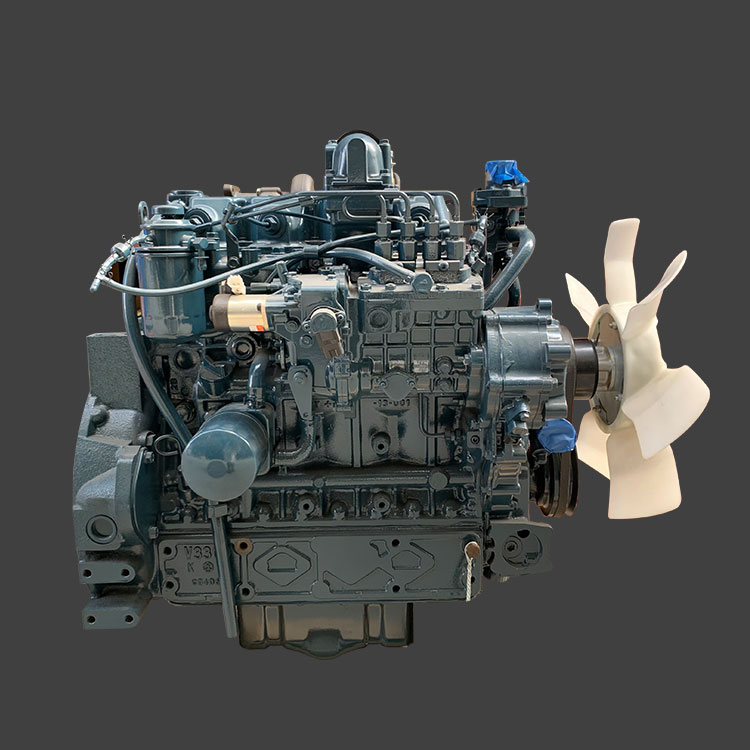Why Are Diesel Engines Still Popular in Modern Industries?
2024-12-30
In today’s rapidly evolving world, the focus is often on electric and hybrid technologies, with renewable energy sources taking center stage. Despite this, diesel engines remain a key player in several industries, from transportation to agriculture, construction, and energy production. But what makes diesel engines so enduring, even in the face of rising environmental concerns and alternative technologies?
In this blog, we’ll dive into why diesel engines continue to be a popular choice and explore their advantages, challenges, and their role in modern industries. Let’s discover why, even in the era of electric and renewable energy, diesel engines are still in demand.
What Makes Diesel Engines So Efficient?
One of the key reasons why diesel engines continue to thrive is their unmatched efficiency compared to many other internal combustion engines. Diesel engines extract more energy from each drop of fuel, primarily due to their higher compression ratios. This means that diesel engines are generally more fuel-efficient than gasoline engines, making them the preferred choice for long-distance transportation and heavy-duty applications.
In fact, diesel engines can be up to 30% more fuel-efficient than gasoline engines. This is especially important in industries like transportation, where operating costs are directly tied to fuel efficiency.
Why Are Diesel Engines Preferred for Heavy-Duty Applications?
Diesel engines are widely used in industrial sectors that require high power and durability. In construction, agriculture, and mining, diesel engines are used in machinery such as excavators, tractors, and dump trucks. These industries rely on diesel-powered engines for their torque, power output, and ability to operate under strenuous conditions for long periods.
Diesel engines are built to withstand heavy workloads, extreme temperatures, and demanding environments. This makes them ideal for applications where reliability and performance are crucial. Their ability to handle heavy loads while maintaining fuel efficiency is unmatched by many other engine types.
How Does Diesel Offer Long-Term Cost Benefits?
While diesel fuel can sometimes be more expensive than gasoline, the fuel efficiency of diesel engines means that, over time, they can be more economical. Diesel engines often have a longer lifespan than gasoline engines due to their robust construction and lower RPM (revolutions per minute). This reduces the frequency of maintenance and replacements, leading to lower long-term operating costs.
For businesses that rely on vehicles and machinery, diesel engines provide significant savings over time. In industries such as logistics and shipping, where vehicles are on the road or in operation for long hours, the fuel efficiency and durability of diesel engines help companies maintain profitability despite rising fuel prices.
What About the Environmental Impact of Diesel Engines?
One of the major concerns surrounding diesel engines is their environmental impact. Diesel engines have traditionally emitted higher levels of nitrogen oxides (NOx) and particulate matter, which contribute to air pollution. However, advancements in technology have led to significant improvements in diesel engine emissions.
Modern diesel engines are equipped with advanced exhaust treatment systems like selective catalytic reduction (SCR) and diesel particulate filters (DPF) that significantly reduce harmful emissions. These technologies help diesel engines meet stringent environmental regulations, particularly in countries with strict air quality standards.
Additionally, the development of bio-diesel and synthetic diesel fuels offers a more sustainable alternative, reducing the carbon footprint of diesel-powered vehicles and equipment.
The Future of Diesel Engines: A Balance Between Tradition and Innovation
Despite the increasing popularity of electric vehicles and renewable energy sources, diesel engines are unlikely to disappear anytime soon. As industries continue to demand high power and fuel efficiency, diesel engines will remain a reliable solution for heavy-duty applications. In fact, ongoing advancements in fuel efficiency, emissions reduction, and hybrid technologies are helping diesel engines evolve to meet modern demands.
For instance, hybrid diesel-electric engines are becoming more common in sectors such as public transportation and construction equipment. These engines combine the power of a diesel engine with the environmental benefits of electric propulsion, offering a cleaner, more efficient solution without sacrificing performance.
Conclusion: Diesel Engines Are Here to Stay
In conclusion, diesel engines continue to be a vital part of modern industries due to their unmatched fuel efficiency, durability, and power. Whether it’s in transportation, agriculture, or construction, the benefits of diesel engines make them an enduring choice for businesses that rely on heavy-duty equipment and long-lasting performance.
While environmental concerns remain, advancements in emissions control and the development of cleaner fuel alternatives ensure that diesel engines can remain a viable, sustainable option for years to come. The evolution of diesel technology will likely see these engines coexist with renewable energy solutions, providing a balanced approach to meeting the world’s diverse energy needs.



